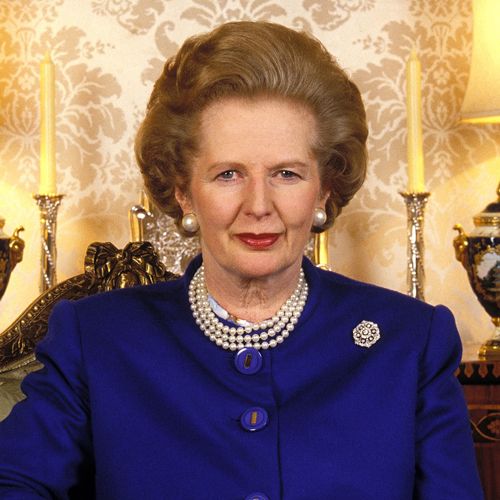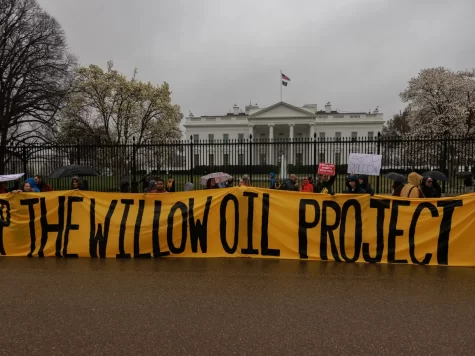The Legacy of Thatcher and Section 28

Margaret Thatcher was certainly an influential figure in British politics. She is arguably the face of neoliberal economics, with perhaps only Ronald Reagan being more associated with the fiscal-conservative wave of the 1980s. After the Second World War, a consensus of government-sponsored social programs and economic recovery pervaded the United Kingdom. By the late 1970s, however, the British economy was facing a combination of economic stagnation and inflation, and Margaret Thatcher capitalized on this by leading both the Conservative Party and British Government in a more laissez-faire direction. Thatcher’s influence would continue to be felt beyond her resignation in 1990, with her Conservative successor John Major maintaining her neoliberal policies and the following two Labour Prime Ministers, Tony Blair and Gordon Brown, opting to pursue Third Way economic policy akin to that of United States President Bill Clinton. Though the Conservatives would opt to also pursue more pragmatic economics with the Governments of David Cameron, Theresa May, Boris Johnson, and Rishi Sunak, the more populist and neoliberal wing of the Conservative Party remains influential to this day, most notably with the Liz Truss Government last year.
The influence of Thatcher, however, can be felt in far more than economic policy. One of her most damaging legacies is Section 28 – a section of the Local Government Act 1988 that demanded local authorities not “intentionally promote homosexuality or publish material with the intention of promoting homosexuality” and prevented the teaching “of the acceptability of homosexuality as a pretended family relationship.” The previous decades in Great Britain, much like in America, saw increasing acceptance of the LGBT relationships and rights, at least on a legal basis. Societally, however, some were less inclined to abandon anachronistic ideas and saw any relationship not heterosexual as wrong. Thatcher justified Section 28 by saying that “children who need to be taught to respect traditional moral values are being taught that they have an inalienable right to be gay.”
Section 28 saw protest and resistance. Britain’s LGBT population and sympathizers to the Pride Movement pushed relentlessly to get it repealed, and in 2003, Section 28 was repealed for the most part, with the Equality Act 2010 eliminating any vestiges of this act in some holdout counties. Yet while it was ultimately defeated, Section 28 resulted in irreparable damage to the United Kingdom. LGBT people were made to feel ashamed about their identity. Children especially were made to feel this way, even being bullied for it. David Cameron would go on to apologize for Section 28 in 2009, but livelihoods and childhoods didn’t return to those who suffered.
Fortunately, outward homophobia, transphobia, and anti-LGBT rhetoric is less prominent today as it was in the 1980s, at least in the upper echelons of government. However, that isn’t to say that LGBT+ peoples face zero discrimination. Many, in both the United Kingdom and the United States, still have to contend with hate and bigotry. Some view the LGBT community with contempt and disgust, while others belittle what they view as a “pretended” status. Section 28 shows what damages this sort of mentality and behavior can cause. At the end of the day, legislation like Section 28 hurts individuals who wish to love, or not love, in their own way.
 The fight for LGBT rights is still not over in Britain, with it being rumored that Liz Truss would repeal the Equality Act 2010 during her ultimately brief and unsuccessful premiership last year. This year, 2023, will be the 35th year since the passage of Section 28 and the 20th year since its formal repeal. Even where we live in the United States has policies that mirror Section 28 to some degree. While Section 28 itself is fortunately gone, there exist echoes of it in rhetoric, positions, and occasionally even policy, both in the United Kingdom and elsewhere. To combat this, we must all speak out, protest, and vote against bigotry and hate wherever we find it, just like those in Britain did against Thatcher’s Section 28.
The fight for LGBT rights is still not over in Britain, with it being rumored that Liz Truss would repeal the Equality Act 2010 during her ultimately brief and unsuccessful premiership last year. This year, 2023, will be the 35th year since the passage of Section 28 and the 20th year since its formal repeal. Even where we live in the United States has policies that mirror Section 28 to some degree. While Section 28 itself is fortunately gone, there exist echoes of it in rhetoric, positions, and occasionally even policy, both in the United Kingdom and elsewhere. To combat this, we must all speak out, protest, and vote against bigotry and hate wherever we find it, just like those in Britain did against Thatcher’s Section 28.




